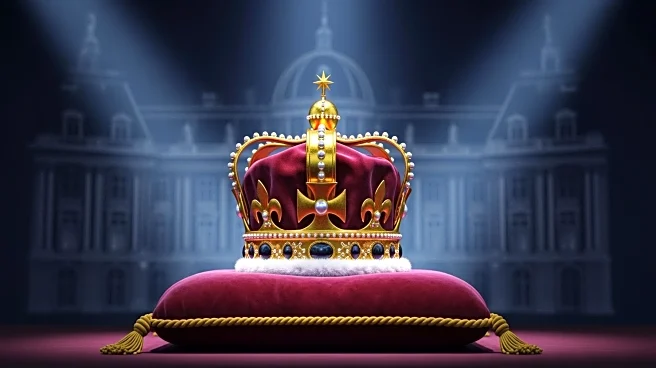What's Happening?
Prince Andrew has voluntarily relinquished his use of royal titles, including the Duke of York, amid ongoing scandals related to his association with Jeffrey Epstein. This decision comes as a strategic
move to avoid parliamentary intervention, which could have formally stripped him of his titles. The announcement follows a series of damaging revelations, including an email suggesting prolonged contact with Epstein and the upcoming publication of Virginia Giuffre's memoir, which revisits allegations against Andrew. Despite stepping back, Andrew maintains his innocence regarding the accusations.
Why It's Important?
This development underscores the royal family's efforts to manage reputational damage and maintain public trust. By allowing Andrew to voluntarily step back, the royal family avoids a potentially contentious legislative process and public spectacle. The decision reflects broader societal pressures for accountability and transparency, particularly in cases involving high-profile figures and allegations of misconduct. It also highlights the challenges faced by institutions in balancing individual actions with collective reputation, especially when familial ties are involved.
What's Next?
The royal family will likely focus on upcoming official engagements, such as the state visit to the Vatican, to shift public attention away from the scandal. However, the release of Giuffre's memoir and ongoing media scrutiny may continue to pose challenges. The situation may prompt further discussions on the role and responsibilities of non-working royals, as well as the implications of personal conduct on institutional integrity. The royal family will need to navigate these complexities while maintaining public confidence and fulfilling their ceremonial duties.










